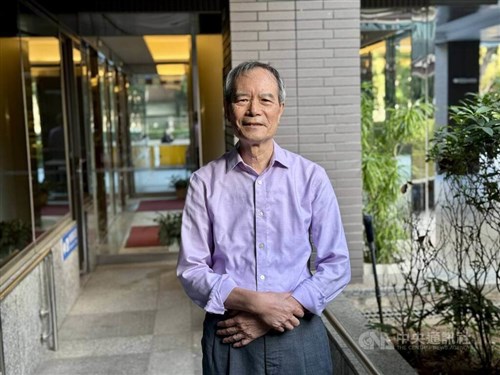INTERVIEW/Actors take on dual identities in gripping new film on White Terror era
11/19/2024 04:01 PM
Multiple Golden Horse Award-winning director Chung Mong-hong (鍾孟宏) is back with his seventh feature film "The Embers" (餘燼), which explores the themes of justice and revenge as a victim and a perpetrator in a Chinese espionage case from Taiwan's authoritarian past trade places 50 years later.
(Full text of the story is now in CNA English news archive. To view the full story, you will need to be a subscribed member of the CNA archive. To subscribe, please read here.)
More in INTERVIEW
![Vietnamese author Trang Hạ embraces life-changing lessons learned in Taiwan]() Vietnamese author Trang Hạ embraces life-changing lessons learned in TaiwanBefore she first set foot in Taiwan in 2003 for an exchange program, Nguyễn Thị Hoa was already gaining recognition as a writer in Vietnam under her pen name, Trang Hạ, having received a few literary awards.12/27/2025 04:58 PM
Vietnamese author Trang Hạ embraces life-changing lessons learned in TaiwanBefore she first set foot in Taiwan in 2003 for an exchange program, Nguyễn Thị Hoa was already gaining recognition as a writer in Vietnam under her pen name, Trang Hạ, having received a few literary awards.12/27/2025 04:58 PM![When life takes a 'left-handed' turn: Vietnamese realizes acting dream in Taiwan]() When life takes a 'left-handed' turn: Vietnamese realizes acting dream in TaiwanVietnamese actress Trần Thu Liễu, also known by her Chinese name Chen Chiu-liu (陳秋柳), has realized her acting dream in Taiwan, a place she has called home for more than two decades.12/22/2025 02:46 PM
When life takes a 'left-handed' turn: Vietnamese realizes acting dream in TaiwanVietnamese actress Trần Thu Liễu, also known by her Chinese name Chen Chiu-liu (陳秋柳), has realized her acting dream in Taiwan, a place she has called home for more than two decades.12/22/2025 02:46 PM![New translation of 'The Canterbury Tales' marks milestone in Taiwan medieval studies]() New translation of 'The Canterbury Tales' marks milestone in Taiwan medieval studiesGeoffrey Chaucer is known as the "Father of English Literature" or the "Father of English Poetry" for his medieval classic "The Canterbury Tales," a work that encouraged writers of his time to write in Middle English rather than French.12/22/2025 12:11 PM
New translation of 'The Canterbury Tales' marks milestone in Taiwan medieval studiesGeoffrey Chaucer is known as the "Father of English Literature" or the "Father of English Poetry" for his medieval classic "The Canterbury Tales," a work that encouraged writers of his time to write in Middle English rather than French.12/22/2025 12:11 PM
Latest
- Politics
China's Taiwan drills raise global concerns, lawmakers call for action
12/30/2025 10:44 PM - Politics
Navy does not deny locking onto PLA warship with fire control radar
12/30/2025 10:25 PM - Politics
Taiwan's military highlights Chinese disinformation during large-scale drill
12/30/2025 09:49 PM - Business
Tesla bot Optimus makes appearance ahead of Taipei Auto Show
12/30/2025 09:10 PM - Business
Almost 60% of employers plan wage hikes in Q1: Poll
12/30/2025 09:00 PM


